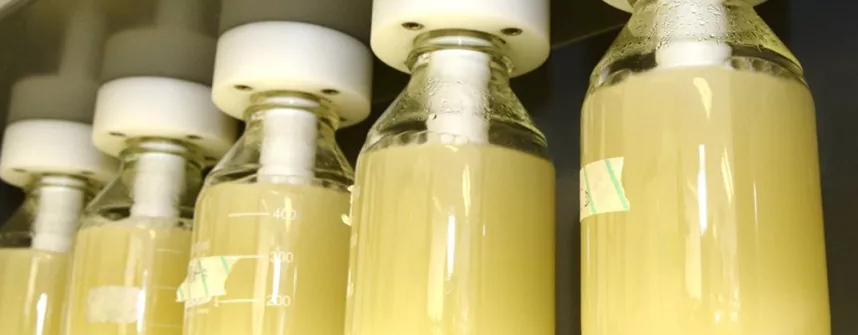“Yeast doctor”: researching new beer varieties and modern yeast applications
September 14, 2017
The European Union is financing the international training of PhD students as part of the “Yeastdoc” program. The aim of the project is to develop improved or new types of yeast strains using biotechnology. Potential fields of application are beer and wine production as well as modern yeast applications such as the use of biofuels and chemicals from renewable resources. Jacobs University in Bremen is the only German university participating in the project and has received funding in the amount of 435,000 euros. Applications for the PhD program are still being accepted.
“Yeasts are interesting for applied science as they are easy to handle, robust and very versatile”, says Dr. Elke Nevoigt, Professor in Molecular Biotechnology at the English-medium university. In nature, they exist as wild yeasts everywhere. They have been grown as cultured yeasts for centuries – for the production of bread and alcoholic drinks. They also play an important role in other biotechnological applications such as in the industrial manufacture of biofuels, chemicals and medications such as insulin.
The “yeast doctors” will conduct research in two areas: they will test new types of potential industrial applications of yeast for the environmentally-friendly production of chemicals and expand the range of traditional applications by, for instance, creating new flavors of beer. This is done by developing new yeast strains by crossing. The molecular properties of the new tastes will be analyzed using the latest genetic methods. The yeast used in the drinks biotechnology will not be genetically modified.
Six academic and nine industrial partners are involved in the research project. The project is being co-ordinated by the University College Cork in Ireland; other academic partners are the University of Leicester (England), the University of Minho (Portugal), INRA Montpellier (France) and the University of Milano-Bicocca (Italy). The Heineken brewery is one of the industrial partners.
“We are currently looking for suitable candidates for the PhD program. The prerequisite is a Masters degree in biotechnology,” says Nevoigt. Each PhD student will always be trained by two academic partners. The special feature of this network is regular meetings between all the PhD students involved in the context of, for example, workshops. Four of the 12 doctoral candidates will do experimental work at Jacobs University. The project is being funded as part of the EU research program “Horizon 2020”.
More information:
https://www.jacobs-university.de/
https://yeastdoc.eu/
Questions will be answered by:
Prof. Dr. Elke Nevoigt | Professor of Molecular Biotechnology
e.nevoigt [at] jacobs-university.de | Tel.: +49 421 200-3541
